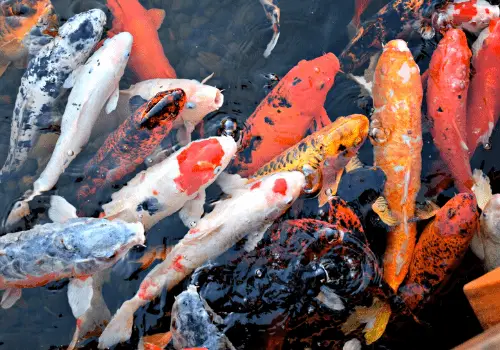The letter K holds some interesting names, some a little scary if we’re honest. There’s killfish, knifefish and knifejaws… however, some of these aren’t as terrifying as they sound.
Our list of fish that start with K does have some more friendly sounding names too, like the Kissing Gourami that we’ve actually popped in our favorites for you to discover more about below.
Each fish in our list has a name in brackets next to it, it may look a little like gibberish, but that’s the fish’s Latin name. These names are given to all living things and act as a scientific name so that creatures can be identified the world over by using the same language – Latin.
Table of Contents
Our Top 5 Fish Names Beginning with Letter K
We’ve picked five of the coolest fish beginning with K (well the ones we think are the coolest) and told you a bit more about each one. Some of these fish are quite popular in the aquarist world, so you may have already heard of them.
The fish that start with K continue in the lists below our top 5, so you can scroll down quick if you want to find them all out. Which ones would you have put in your top 5?
Kenyi Cichlid (Pseudotropheus lombardoi)
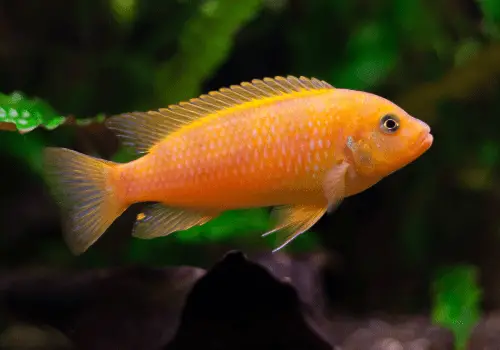
This lovely brightly coloured fish is endemic to Lake Malawi in the rocky areas of Mbenji Island and Nkhomo reef. When kept in aquariums, they like to have lots of space to swim, but also plenty of rocks and some safe cave-like areas to mimic their usual environment. This breed of cichlid is known for being very aggressive, so keep them with big, robust fish who won’t be bullied or killed by the Kenyi Cichlid.
Despite their aggressive nature, these cichlids are vegetarian and enjoy eating algae from rocks. Feed them Spirulina pellets to keep them full and happy.
Kissing Gourami (Helostoma temmincki)
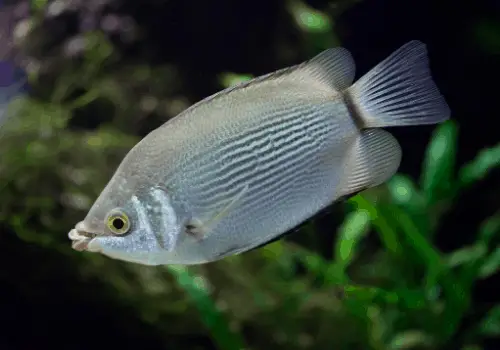
Mwah! We love these Kissing Gourami and think they’re pretty cool. The name they have been given comes from the “kiss” that males use to assert their dominance. Those extra smackers protruding from their mouths actually act as teeth – not so cute as we first thought. If your Gouramis are always having a smooch, they should be separated because both fish will be distressed from all of the biting.
Keep these fish happy by providing large rocks in their tank and keep the current moving slowly. Any plants in the tank should be hardy, well planted and not very tasty – Kissing Gourami are hungry little creatures so a yummy plant might not last with them around. Feed them 1-3 times each day to keep these greedy gourami satisfied.
Kiver (Lepomis gibbosus)
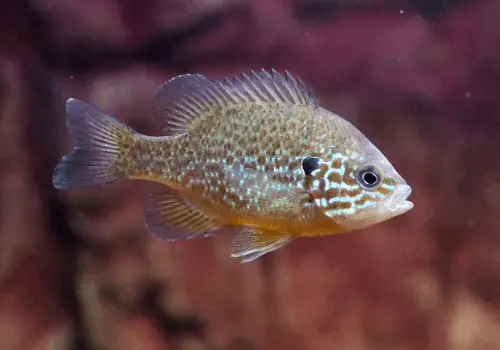
The Kiver is known for being a bit nasty to other fish, so they should not be kept in a community tank as they will eat smaller fish. This carnivorous creature will enjoy a diet of insects, fish and invertebrates and if you “train” them, they will learn to love (thawed) frozen foods – removing the risk that some live foods can carry. They are a coldwater fish, so will not need a heater for their tank, but may need some form of chiller if you live in warmer climes.
Because of the Kiver’s aggressive nature, they can have a tendency to break things and destroy their tank a little – moody teenagers of the fish world! If you want a perfectly aquascaped tank, then perhaps avoid this breed as they will pull up plants and rearrange things.
Koi (Cyprinus rubrofuscus)
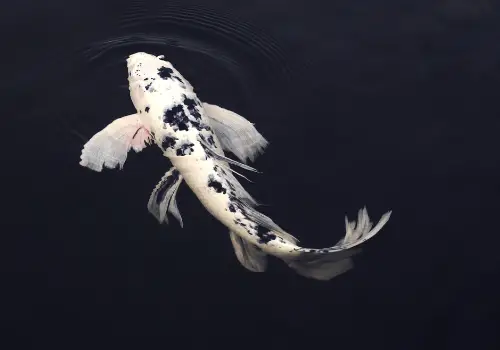
Koi carp are a beautiful variety of fish most often kept in ponds as they can get rather large. Their coloring ranges between red, orange, gold, white, black and blue and many have really unique patterns. If you want to keep koi inside in a tank, they must be young (smaller) and have at least 29 gallons of water per fish. It is recommended that these fish are kept in outdoor ponds due to their size. Despite being coldwater fish, they will not fair well in a long winter and prefer to be at temperatures between 15-25 °C (59–77 °F).
Kois will eat pellets developed specifically for their breed or they enjoy peas or even watermelon! They are omnivorous so enjoy a wide variety of food.
Kooliad Barb (Barbus tetrazona)
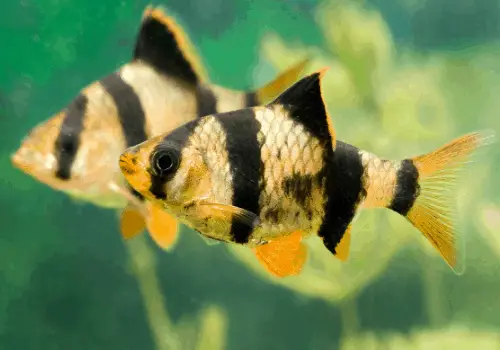
The Koolaid Barb looks very similar to a Tiger Barb with it’s thick black stripes, they just have a more orangey/red tinged coloring. These little guys like to be able to shoal, so keep them with at least 5 other buddies and they like a fast paced environment, so tank mates could include catfish, danios or platys.
Like the Kissing Gourami, these fish love their food and can become a little greedy and aggressive when feeding. They like to have plenty of vegatation in the tank for places to hide, but they spend most of their time chasing eachother around the tank and playing.
List of fish names starting with K
Below are the rest of the fishies beginning with K, there are freshwater and saltwater fish for you to peruse. We couldn’t fit all of our favorites into the top 5, so we definitely recommend you look up more of these fish – there are some really interesting specimens!
If your favorite fish that starts with K hasn’t appeared in our list, comment below, so we can keep our list as comprehensive as possible.
Freshwater fish beginning with K:
- Kafirnigani Gray Loach (Triplophysa dorsalis kafirnigani)
- Kafue Pike (Hepsetus cuvieri)
- Kaluga (Huso dauricus)
- Kanyu (Elopichthys bambusa)
- Katangae Nile Bichir (Polypterus bichir katangae)
- Keyhole Cichlid (Cleithracara maronii)
- Killifish (Nothobranchius rachovii)
- Kingsley’s Ctenopoma (Ctenopoma kingsleyae)
- Kner’s Banjo Catfish (Dysichthys knerii)
- Knifefish (Rhamphichthys marmoratus)
- Knight Gobie (Stigmatogobius sadanundio)
- Kokanee (Oncorhynchus nerka)
- Kokopu (Galaxias postvectis)
- Kribensis (Pelvicachromis pulcher)
- Kuhli Loach “Black” (Pangio javanicus)
- Kuhli Loach (Pangio kuhlii)
- Kuiper’s Loach (Nemacheilus selangoricus)
- Kyburz Tetra (Pseudochalceus kyburzi)
Saltwater fish beginning with K:
- Kahawai (Arripis trutta)
- Kelp Perch (Brachyistius frenatus)
- Kelpfish (Chironemus marmoratus)
- King of the Herrings (Regalecus glesne)
- King-of-the-Salmon (Trachipterus altivelis)
- Kingfish (Menticirrhus americanus)
- Knifejaw (Oplegnathus fasciatus)

